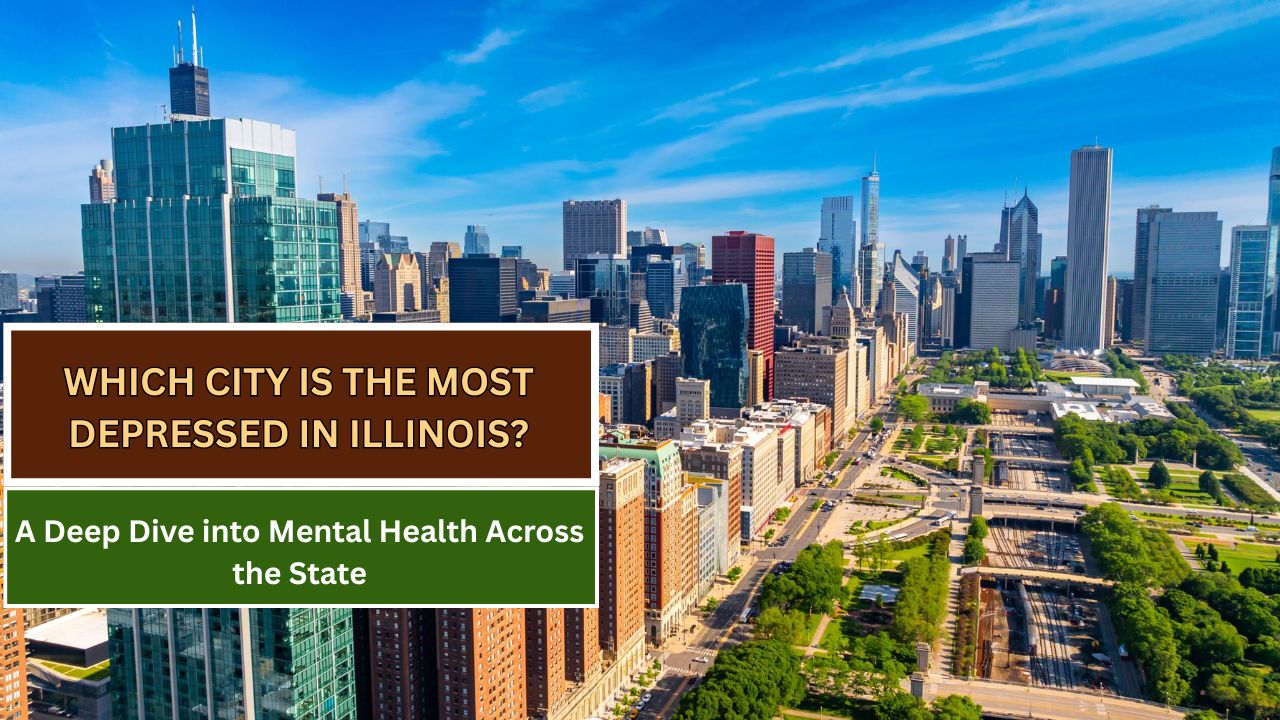Mental health is a growing concern across the United States, and Illinois is no exception. While it’s difficult to definitively identify a single “most depressed” city, several areas in Illinois struggle with high rates of depression due to complex socioeconomic and structural issues. Based on recent data and reports from reputable sources, Carbondale-Marion, parts of Cook County (especially Chicago), and Centreville emerge as areas facing some of the state’s most significant mental health challenges.
Carbondale-Marion: The Most Miserable City in Illinois?
According to a 2023 analysis by 24/7 Wall St., the Carbondale-Marion metropolitan area ranks among the most miserable places to live in Illinois. This label is based on a range of quality-of-life metrics, including:
- Low median household income
- Poor access to healthcare
- High unemployment and poverty rates
- Limited community resources
The Southern Illinois area, anchored by Carbondale and Marion, has long faced economic challenges. These have contributed to poor mental health outcomes, with residents more likely to experience depression and related disorders.
Chicago: ZIP Codes With Elevated Depression and Suicide Risks
While Chicago as a whole offers access to some of the best healthcare institutions in the country, not all communities benefit equally. A 2023 report by Mental Health America analyzed ZIP-code-level mental health needs in Cook County and found striking disparities.
In ZIP code 60603, researchers recorded one of the highest levels of suicidal ideation in individuals under 18. The findings underscore that even within major metropolitan areas, mental health challenges can be deeply localized.
These disparities often stem from historical inequities, limited access to culturally competent care, and systemic issues that have persisted for generations.
Centreville: One of Illinois’ Poorest Cities Struggles With Wellbeing
Centreville, located in St. Clair County near East St. Louis, has been frequently cited as one of the poorest communities in the state. According to data compiled by Wikipedia, Centreville has a median household income significantly below the national average and faces severe infrastructure and environmental challenges.
Residents of Centreville often lack access to reliable transportation, safe housing, and quality medical care. These factors create a breeding ground for mental health struggles, especially depression and anxiety.
Statewide Depression and Mental Health Statistics
According to America’s Health Rankings, Illinois ranks 10th nationally for adult depression, with 18.1% of adults reporting a diagnosed depressive disorder. Additionally, a KFF survey from February 2023 indicated that 28.7% of adults in Illinois reported symptoms of anxiety or depression within a two-week period.
These numbers are particularly alarming in light of limited access to care in many parts of the state. Rural regions such as Southern Illinois are especially vulnerable, as highlighted by The Daily Egyptian, which found that rising depression rates are outpacing local treatment availability.
Underlying Causes of Depression in Illinois
Several interrelated factors contribute to elevated depression levels in various Illinois communities:
- Economic Inequality: Poverty, unemployment, and low educational attainment are strongly linked to poor mental health outcomes.
- Access to Healthcare: Many areas, particularly rural or underserved urban neighborhoods, lack mental health professionals or clinics.
- Historical and Racial Inequities: Decades of segregation, redlining, and disinvestment continue to impact communities like Centreville and South Side Chicago.
- Youth Mental Health Crisis: Rates of depression and suicidal thoughts among adolescents are rising statewide, particularly in underfunded school districts.
Conclusion: A Statewide Mental Health Crisis with Local Faces
Labeling one city as the “most depressed” oversimplifies the reality of mental health in Illinois. However, cities like Carbondale-Marion, Centreville, and specific areas within Chicago are grappling with deep-rooted challenges that place their residents at higher risk for depression and related mental health issues.
Efforts to combat this crisis must be localized, inclusive, and long-term—focusing not only on access to treatment, but also on addressing the root causes of economic and social disparity.
This article has been carefully fact-checked by our editorial team to ensure accuracy and eliminate any misleading information. We are committed to maintaining the highest standards of integrity in our content.

Outside of work, he enjoys playing chess, following cricket, and writing short stories. His commitment to integrity and in-depth analysis strengthens OTE News’ mission of providing trustworthy journalism.




